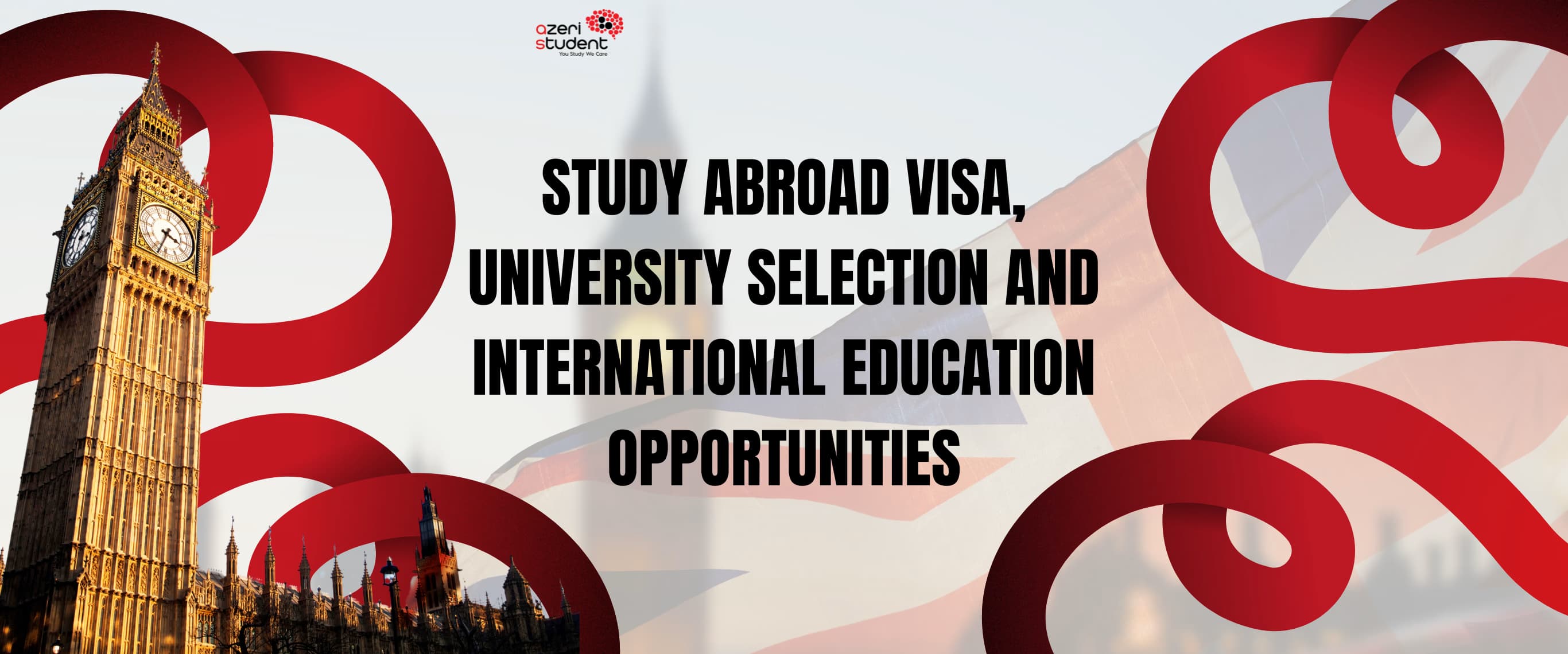Study Abroad
8 min read
Study Abroad Visas, University Selection, and International Education Opportunities
21.03.2025

Studying abroad is an excellent path for professional development and building a global career. However, the journey begins with choosing the right university and successfully completing the student visa process. Below, we present key points about university selection and the visa process for studying abroad.
When considering studying abroad, university selection plays a vital role. The ranking of the country and the quality of its institutions affect your academic experience and career opportunities. Prestigious universities offer international students high academic standards, global recognition, and broader career prospects.
USA: Home to the world’s most prestigious universities like Harvard, Stanford, and MIT. Studying in the USA offers vast opportunities and a strong entry into the global job market.
UK: Institutions like Oxford and Cambridge offer academic excellence, cutting-edge research, and access to global networks. The UK is also known for its diverse programs and financial aid options.
Germany: Known for high-quality education and low tuition fees. Many German universities offer English-taught programs, making them attractive to international students.
Canada: Canadian universities are recognized for their modern programs and high academic standards. The country also provides work opportunities and a favorable visa policy for international students.
Choosing a university is not just about academic reputation — it’s also about the global recognition of the diploma. Make sure the university has international accreditations and a strong presence in global rankings.
Top-ranking universities usually offer access to better academic resources, strong research environments, and collaboration with leading experts.
Once you’ve decided to study abroad, one of the most important steps is obtaining a student visa. This visa allows you to live and study legally in the country. General visa requirements include:
Admission Letter: Proof of acceptance from a recognized university.
Proof of Finances: Documentation showing you have enough funds to cover tuition and living expenses.
Language Proficiency: Depending on the country and university, language test results such as IELTS, TOEFL, or other certificates.
Insurance: Health and travel insurance may also be required.
Frequently Asked Questions About Studying Abroad
Diploma recognition varies by country. Many countries accept diplomas from internationally accredited universities, but in some cases, additional procedures for local recognition may be needed. Contact your country’s Ministry of Education for more information.
A degree from abroad can give you a competitive edge in the job market. It also helps build valuable networks and professional relationships. Many countries offer work permits for students and post-study work opportunities.
Many universities offer scholarships and financial aid for international students. In addition, programs like Erasmus+, Fulbright, and other exchange schemes provide excellent opportunities for studying abroad.
Studying abroad is a great chance to earn a degree from a globally recognized university and gain valuable international experience. But when choosing a country or university, don’t just consider education quality — pay attention to the visa requirements as well. Each country has its own rules and procedures. By making the right university choice and following the visa process correctly, you can set the foundation for a successful study abroad experience.